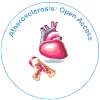Nuestro grupo organiza más de 3000 Series de conferencias Eventos cada año en EE. UU., Europa y América. Asia con el apoyo de 1.000 sociedades científicas más y publica más de 700 Acceso abierto Revistas que contienen más de 50.000 personalidades eminentes, científicos de renombre como miembros del consejo editorial.
Revistas de acceso abierto que ganan más lectores y citas
700 revistas y 15 000 000 de lectores Cada revista obtiene más de 25 000 lectores
Indexado en
- Google Académico
- Búsqueda de referencia
- Universidad Hamdard
- EBSCO AZ
- publones
- ICMJE
Enlaces útiles
Revistas de acceso abierto
Comparte esta página
Abstracto
Trastornos del sueño en pacientes con enfermedad de Parkinson y su correlación con la gravedad de los síntomas motores
Rabwa Khalil Mohammed Fadol
Antecedentes: Los trastornos del sueño son manifestaciones no motoras que se presentan hasta en el 96% de los pacientes con
enfermedad de Parkinson (EP). Incluyen insomnio, trastornos de somnolencia diurna, trastornos respiratorios relacionados con el sueño,
síndrome de piernas inquietas (RLS) y trastornos de conducta de movimientos oculares rápidos. Los trastornos del sueño tienen un impacto significativo
en la calidad de vida de los pacientes con enfermedad de Parkinson.
Método: Este fue un estudio descriptivo transversal realizado en tres hospitales de referencia de neurología. El objetivo
fue evaluar la frecuencia y el patrón de trastornos del sueño entre pacientes con EP. Se utilizaron cuestionarios para
obtener las características demográficas y clínicas y la evaluación de los trastornos del sueño mediante la escala de sueño de EP-2 (PDSS-2). La
correlación de la calidad del sueño con la duración de la enfermedad y la gravedad de los síntomas motores se evaluó mediante
la estadificación de Hoehn y Yahr. El SPSS versión 25 fue la herramienta utilizada para el análisis, valor p < 0,05.
Resultados: Se estudiaron 71 pacientes con EP confirmada. Los varones representaron el 70,4% y la edad media fue de 64,66 ±
9,6 años.
El 38% presentó alteraciones significativas del sueño nocturno (PDSS-2 ≥18). Los trastornos del sueño más frecuentes fueron nicturia
72% (51), insomnio de mantenimiento del sueño 46% (38), refresco del sueño 46% (34), despertarse por dolor en brazos o piernas
45% (32) y (21%) 15 presentaron alucinaciones nocturnas. Los pacientes con mal sueño mostraron una mayor duración de la enfermedad, pero no revelaron
asociación con la gravedad de la EP.
Conclusión: En 71 pacientes con enfermedad de Parkinson, un tercio presentó alteraciones significativas del sueño. La puntuación PDSS-2
se correlacionó positivamente con la duración prolongada, pero no con la gravedad de los síntomas motores.
Revistas por tema
- Agricultura y acuicultura
- Alimentación y Nutrición
- Bioinformática y biología de sistemas
- Bioquímica
- Ciencia de los Materiales
- Ciencia general
- Ciencias Ambientales
- Ciencias Clínicas
- Ciencias farmacéuticas
- Ciencias Médicas
- Ciencias Sociales y Políticas
- Ciencias Veterinarias
- Enfermería y atención sanitaria
- Física
- Genética y biología molecular
- Geología y Ciencias de la Tierra
- Ingeniería
- Inmunología y Microbiología
- Química
Revistas clínicas y médicas
- Anestesiología
- Biología Molecular
- Cardiología
- Cirugía
- Cuidado de la salud
- Dermatología
- Diabetes y Endocrinología
- Enfermedades infecciosas
- Enfermería
- Gastroenterología
- Genética
- Inmunología
- Investigación clínica
- Medicamento
- Microbiología
- Neurología
- Odontología
- Oftalmología
- Oncología
- Pediatría
- Toxicología

 English
English  Chinese
Chinese  Russian
Russian  German
German  French
French  Japanese
Japanese  Portuguese
Portuguese  Hindi
Hindi